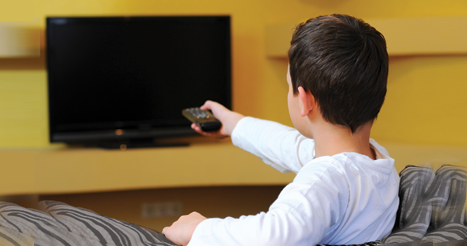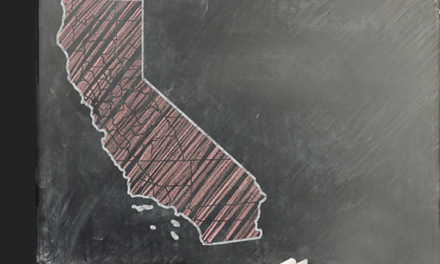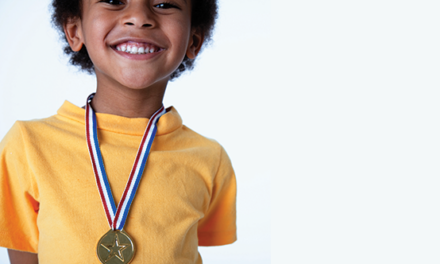The adult antics in the political arena are shaping the attitudes of this country’s future voters and participants in the process.
Neither of the leading presidential candidates has said much about education during their campaigns. But that doesn’t mean the campaign hasn’t affected what children are learning.
Yes, Mrs. Clinton has reminded voters that she has been a longtime advocate for early childhood education (as First Lady of Arkansas, she led the effort to bring HIPPY (Home Instruction for Parents of Pre-K Youth) to the state) and that she wants to ensure that every child has access to early childhood education within 10 years. She’s also picked up on former rival Bernie Sanders’ push to enable eligible students to receive a free college education at public universities.
For his small part, Donald Trump has remained true to form when it comes to education. He paints a picture filled with horrors then promises to close failing schools and give parents a choice about where their children attend school. His entire description of his position on K-12 education is a 52-second YouTube video on his web site. He’s also said he’d reduce or eliminate the U.S. Department of Education. Yawn.
Rather than dwell on what the candidates have or have not said about education, consider what this campaign season is teaching children about the political process and how we relate to one another during great turmoil and change.
Children see and hear everything. Even when we think we’re being clever and talking in code, kids pick up the signals and put the pieces together. This generation even manages to do it while texting and Snapchatting.
The Democrats have used this notion to great effect with their “Our Children are Watching” political ads. In the ads, Donald Trump is his usual antagonistic, bullying self. Then the shot cuts to the faces of children as they watch his antics. At the end, Mrs. Clinton reminds us that children follow our lead so the kind of path we forge matters . . . a lot.
Disrespectful Washington
Politics aside, the point is well taken. A corrosive climate has taken hold in Washington, and it started way before this current presidential campaign. Many members of Congress have been engaged in disrespectful and destructive behavior for years. Important legislation has languished because of bipartisan politics, and civil discourse has all but disappeared from the political process. One need only look at the multiple education laws still waiting to be reauthorized to know that cooperation is not the watchword in Washington.
The newly authorized Every Student Succeeds Act is the exception, but it still took 13 years to get that job done. Several key education laws are still awaiting reauthorization. Among them are the Higher Education Act, the Workforce Investment Act, and the Carl D. Perkins Career and Technical Education Act. If the nation’s public education system is now oriented toward college- and career-readiness for all students, you’d think such important federal programs might gain some traction.
So how does all this gridlock and related antagonism affect children? As the mother of two teenagers, I’ve seen that as my children age and mature, the political process becomes more relevant to their otherwise self-absorbed lives. Social media and the 24-hour news cycle ensure that they’re bombarded with news and information about politics, some of which is reliable and plenty that is not. They are clearly aware of politics, but the political process — and the role they play within it — is something they are only now beginning to think about. They are learning that American democracy is both elegant and messy and that truly understanding the political process is a challenge even under the best of circumstances.
But understanding is just part of the equation. Young people also need to have at least some modicum of respect for the political process and some faith in its ability to carry the nation forward. Unfortunately, the outlook for faith and respect in government is not promising. According to the Pew Research Center, in 2015, just 19% of Americans said they could trust government always or most of the time. Fifty-five percent of Americans said “ordinary citizens” could solve national problems better than elected officials. If young people grow up hearing that government and the political process are dysfunctional and useless, how can we expect them to respect and participate in the system when they become adults?
By design, the U.S. political structure is calibrated with every election cycle so a person’s understanding and respect for the process matters. But has recent political discourse helped build political understanding among our children? Has it taught them to respect their role in America’s political system?
If anything, Congress has demonstrated all too well how not to get things done. The fact that such epic gridlock has occurred during the administration of the country’s first African-American president is particularly egregious. At a moment in our history that had the power to be so inspiring, the lesson instead became one about discord and rancor.
Meanwhile the current presidential campaign has schooled children in racism, intolerance, and the complete disregard of facts and history. Candidate Trump’s bad boy behavior may titillate some, but how do you quantify the amount of psychic damage it has caused? If children think disrespect and distortion is the new normal in politics, then does the same hold true in life? If a presidential candidate can poke fun at a person with a disability or misrepresent widely known and universally accepted facts, then where does the line get drawn for the rest of us?
Unteaching the lessons
Sadly, we can’t unteach the lessons learned during this campaign. We can only hope that young people still feel called to serve in a political capacity despite all the nonsense. If young people choose to shun the political process — and, at this point, who could blame them — then we are left only with those who view politics as a pathway to further their personal goals and ambitions.
During this school year, I won’t be surprised if teachers see some students re-creating the dynamics of this campaign in their classrooms. That prospect does not bode well for any of us. In an increasingly global and interconnected world, this emerging generation will need to value tolerance and play well with others on a whole new level. A growing body of research and polling (including last month’s PDK Poll of Public’s Attitudes Toward the Public Schools) shows that both educators and the public believe students must be prepared to work collaboratively and understand their responsibilities as citizens. After this election, schools may need to work double time to meet that goal.
Despite all the bad behavior and new low moments in today’s political world, I do have tremendous faith in the ability of children to seek out goodness and resolution. As children contemplate what they have seen and heard during this and other campaigns, we can only hope that desire remains intact and that they focus their attention on leaders worthy of their respect and support. As for the rest, let them serve as a lesson in how not to act.
Citation: Ferguson, M. (2016). The children are watching. Phi Delta Kappan 98 (2), 74-75. © 2016 Phi Delta Kappa International. All rights reserved.
ABOUT THE AUTHOR

Maria Ferguson
Maria Ferguson is an education policy researcher, thought leader, and consultant based in Washington, DC.










